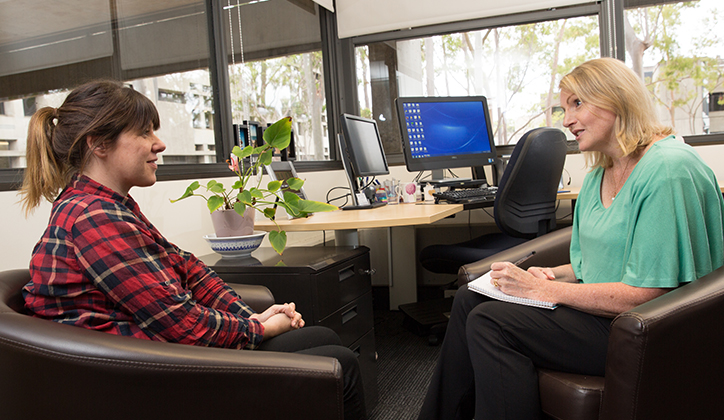A crucial element of our student experience is access to wellbeing and other support services, accurate advice and referral – processes that were identified for streamlining by members of the Student Engagement for Success strategic initiative last year.
Now, following the implementation of a Business Process Improvement Initiative (BPII) that pinpointed key opportunities for improvement, the University has developed a set of resources, standard processes and tips for staff in front line roles to enhance how students are referred across campus to our varied support services.
“We’re committed to providing our students with the best experience we can offer to enable them to achieve their academic aspirations,” says Deidre Anderson, Deputy Vice-Chancellor (Students and Registrar). “That experience can only be realised when there is collaboration between academic, administrative, support and professional service units on projects like this.”
Dr Benjamin Wilkes, Manager, Allied Health, Campus Wellbeing and Support services, and BPII champion across business areas, says an enhanced student experience was at the core of this initiative.
The referral process was reviewed as a Lean Methodology Rapid Improvement Event, which allowed consideration and inclusion of many perspectives from previously dispersed areas of service provision from across campus.
“The process enabled many stakeholders to identify their practices that could be shared, identify the means to increase consistency, and reduce the time it takes students to get the support they need,” says Dr Wilkes.
The new, streamlined process is detailed in a clear process map, new referral guide and accompanying wiki page that outlines how to respond to a student’s needs based on their eligibility for services and current presenting needs. Additional content will be added throughout 2015.
“The process map and guide provide front line staff with clear procedures on how to deal with regular, complex and emergency referrals with efficiency and confidence,” says Dr Wilkes.
Dr Wilkes explains all referrals will be recorded on Tracker so that histories of student queries are viewable to service staff, and accessible when students make contact.
“The greatest benefit to a student is that their needs and questions can be answered by the first, or at least the second person they contact,” he says. “It also means there will be far fewer instances of a student bouncing between services without receiving the support that most accurately reflects their circumstances or needs.”

